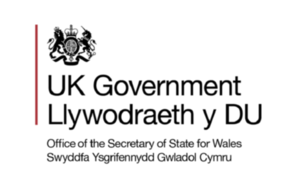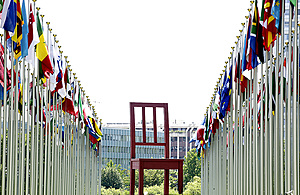Extra £35m for Wales in fight against coronavirus
Press release
This takes the total amount of funding provided by the UK Government to support the effort to tackle the coronavirus in Wales to over £2.1 billion

The UK Government has committed an extra £35 million to support Wales in the fight against coronavirus, Welsh Secretary Simon Hart has confirmed today (Friday 15 May).
The devolved administration in Wales will receive the additional funding as a result of the UK Government’s investment in care homes in England, designed to introduce greater infection control, ramp up testing, step up clinical support, ensure English local authorities have plans in place to support care homes and boost the capacity of the social care workforce.
This takes the total amount of funding provided by the UK Government to support the effort to tackle the coronavirus in Wales to over £2.1 billion.
Secretary of State for Wales Simon Hart said:
This is the latest in a series of direct funding from the UK Government to help Wales through this pandemic, committed in tandem with a package of UK-wide measures on a scale that has never been seen before. We are doing everything we can to ensure Wales overcomes this crisis.
Today’s announcement will ensure the Welsh Government can provide vital services while tackling the next stages of this devastating virus.
The UK Government continues to support people in Wales through our UK-wide PPE strategy meaning our heroic front-line workers have the protection they need to tackle the coronavirus pandemic. We have also mobilised the Armed Forces to bolster medical and logistical efforts as well as repatriating British citizens from overseas.
The Chancellor Rishi Sunak has also announced unprecedented UK-wide measures to support businesses and workers in Wales and across the UK during the coronavirus pandemic. These include:
- The Coronavirus Job Retention Scheme where small and large employers can apply for a government grant of 80% of workers’ salaries up to £2,500 a month. The scheme will be backdated to March 1 and is available until October this year.
- Deferral of the next quarter of VAT payments for firms, until the end of June – representing a £30bn injection into the economy.
- £330bn worth of UK Government-backed and guaranteed loans to support businesses.
- The Bounce Back Loan Scheme will provide loans of up to £50,000 to benefit small businesses with a 100% government-backed guarantee for lenders. These loans will be interest free for the first 12 months and businesses can apply online through a short and simple form.
- The Self-Employed Income Support Scheme will help eligible freelance workers in Wales to receive up to £2,500 per month in grants for at least three months.
ENDS
Published 15 May 2020

